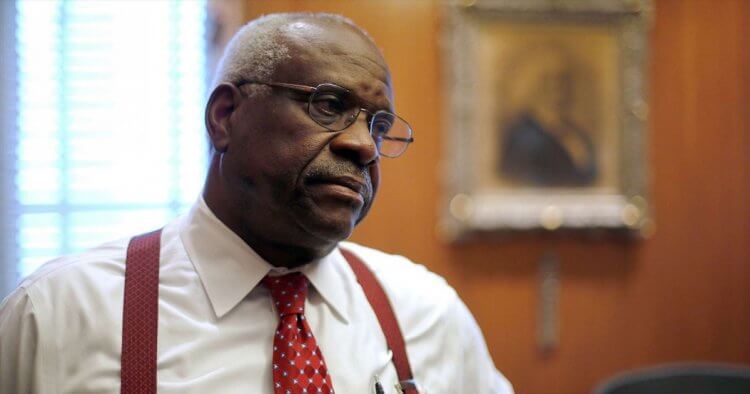Supreme Court Justice Clarence Thomas pitched the idea of revisiting other major cases after the overturning of Roe v. Wade.
Thomas voted with the majority in the reversal of the landmark case and discussed the possibility in his concurring opinion, drawing comparisons between abortion and other cases that have been seen by the Supreme Court in recent years.
“In future cases, we should reconsider all of this Court’s substantive due process precedents, including Griswold, Lawrence, and Obergefell,” Thomas wrote, “Because any substantive due process decision is “demonstrably erroneous,” […] we have a duty to “correct the error” established in those precedents.”
Griswold v. Connecticut was a 1965 case in which the use of contraception by two married individuals was private and protected by the constitution. Lawrence v. Texas was a 2003 case dealing with homosexual sex between two consenting parties, and Obergefell v. Hodges was the 2015 case which would make homosexual marriage constitutionally protected.
Thomas called these rulings “demonstrably erroneous” and speculated that Roe v. Wade may be the first of multiple cases to consider for their unconsitutionality.
He continued, “After overruling these demonstrably erroneous decisions, the question would remain whether other constitutional provisions guarantee the myriad rights that our substantive due process cases have generated.”
“To answer that question, we would need to decide important antecedent questions, including whether the Privileges or Immunities Clause protects any rights that are not enumerated in the Constitution and, if so, how to identify those rights.”
“That said, even if the Clause does protect unenumerated rights, the Court conclusively demonstrates that abortion is not one of them under any plausible interpretive approach,” Thomas concluded.
The decision to overturn Roe v. Wade has already generated significant backlash from the left. The Washington Post’s Alyssa Rosenberg called it the first steps to erase the “more tolerant future” for LGBT people, and New York Times’ Charles M. Blow claimed the Right was placing LGBT people in a “cultural gay ghetto.”
These columns have also defended aspects of the LGBT community such as “Drag Queen Story Hour” and been vocal in their attacks of Florida’s Parental Rights in Education Bill, better known as the “Don’t Say Gay” Bill, which bans discussing sex and sexuality with children in third grade or younger, giving Florida parents the ability to discuss such topics with their children when they feel it is necessary.
This story originally appeared on Resist the Mainstream















